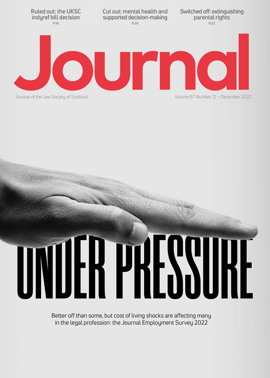Viewpoints: December 2022
Tracking funeral plans
It’s reassuring news that the FCA has clamped down on funeral policy providers, requiring them to be regulated. Twenty-six firms have been approved (covering more than 87% of an estimated 1.85 million plans sold).
However, 23 either did not apply for authorisation or failed to meet the new rules. They include a number of companies that have gone bust in recent months. Individuals and families affected are waiting to find out if they will get any of their money back.
The problem for plan providers is the issue of keeping records up to date. It comes with huge cost and effort. More than 1.4 million policies “undrawn” (for now accredited companies), holding a value of £4 billion, will all require checks to ensure addresses are up to date.
These often forgotten, hidden assets could prove a significant headache for solicitors if they surface after an estate has been distributed.
From the perspective of probate researchers, we have major concerns about the abilities of funeral care providers to double check that each policyholder’s address information is current or, most importantly, to regularly check whether or not the policyholder has passed away. As we are often the first professionals to enter properties, mostly when individuals die intestate, it’s been a longstanding concern that funeral policies are forgotten about and never cashed in or reclaimed.
The issues are their values (we have seen some hold £20,000 in value), and the ensuing implication regarding tax liabilities. On this point it could also be deemed a lost asset which could otherwise help next of kin where there would otherwise seemingly be no other monies in an estate.
Furthermore, funeral plans are not part of any standard asset search. We also now have to deal with the glut of companies which failed to become accredited in July. There is no evidence they’re spending money updating their records, and the concern is that many funeral policies are or will be lost in the ether.
Our experience has also shown us that individuals are more likely to update wills than details of funeral policies, which tend to be forgotten. The FCA has raised concerns about plans going unclaimed because “the consumer’s family don’t know about them. The time-critical nature of funeral provision increases the risk of harm as families cannot use plans if they discover them at a later date”.
A solution, which would require industry cooperation from accredited and non-accredited firms, could be the creation of a central funeral plan registry. This would ensure that the existence of the plan, one of the most overlooked assets in an estate, can be found more readily in the future.
In the meantime, thousands of families are being saddled with unforeseen and unnecessary funeral expenses, that the deceased sensibly thought to cover in their lifetime.
“Doing nothing” should no longer be an option for funeral plan providers, and we hope to see thousands of families benefitting from these forgotten policies sooner rather than later.
Danny Curran, founder, Finders International and chair, International Association of Professional Probate Researchers
Perspectives
Features
Briefings
- Criminal court: Farewell retrospective
- Agriculture: A future support framework
- Corporate: Is there a creditor duty?
- Intellectual property: "Reclaiming the UK statute book"
- Sport: Flouting their own rules?
- Succession: Crofting tenancy transfers in intestacy
- Scottish Solicitors' Discipline Tribunal: December 2022
- Property: Conveyancing – the future is in our hands
- In-house: With a fair wind






